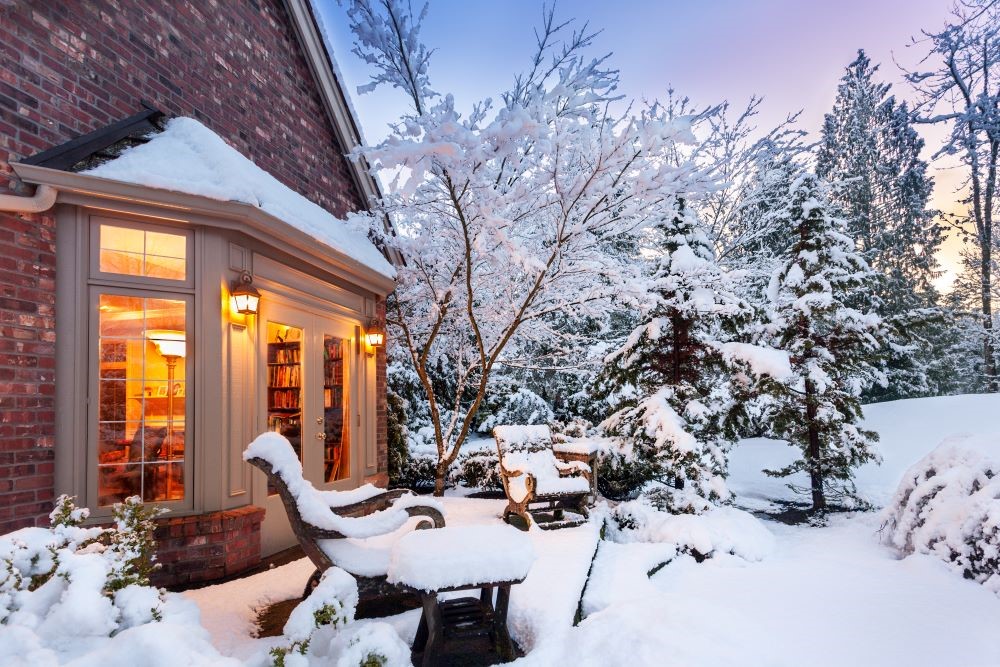Winterizing Your Septic Tank: A Guide to Cold-Weather Prep
A septic tank is a significant investment, so maintaining it properly is key. Unfortunately, many people only think about their septic tank when it starts acting up. Winter, with its extremely low temperatures, poses a particular challenge, as it can lead to freezing issues and potential problems. We are here to help with all of your well and septic inspection needs. To ensure your septic tank remains in top-notch condition during the winter months and avoids any unwelcome surprises, here are some valuable tips to winterizing your septic tank:
1. Sche dule a Pre-Winter Septic Tank Inspection:
dule a Pre-Winter Septic Tank Inspection:
Before winter settles in, engage a local septic company to conduct a thorough inspection of your septic tank. An annual professional inspection ensures that all components are functioning correctly, there are no leaks, and the entire system is in good working order.
2. Winterize Your Pipes:
If you won't be around during the winter, take the necessary steps to prevent freezing and cracking of the septic tank's pipes. Start by shutting off the water main, then open all taps to allow them to drain completely. Disconnect hoses to appliances like the dishwasher and washing machine. Crucially, empty the tank's pressure and add septic-safe antifreeze following the manufacturer's guidelines.
3. Check the Septic Tank Lid:
Inspect the lid for any holes or cracks. A secure lid prevents debris, children, and small animals from entering the tank. A tightly sealed lid also helps trap internal heat generated by anaerobic bacteria, maintaining a high metabolic rate crucial for breaking down solid waste and treating wastewater. Winterizing your septic tank lid is important. If any issues are detected with the septic tank lid, promptly replace it with the help of a professional before winter arrives. Contact us if you need this looked at.
4. Pump Out the Tank:
Consider pumping out the septic tank if your home will be closed during winter or if it's used infrequently. Pumping eliminates waste and prevents the freezing of greywater during the winter months. Generally, septic tanks should be pumped every three to five years, so if it's due, do it before temperatures drop, as freezing ground can make the tank challenging to access.
5. Insulate the Drainage Field:
Protecting the septic tank during cold months is crucial for winterizing your septic tank, and the frozen ground poses a potential threat. Ensure your drainage field is insulated by allowing grass to grow around the septic system, providing effective snow retention. Grass acts as an insulating layer during winter. If you don't have a lawn, spread leaves or straw over the drain field, or invest in insulated blankets to retain heat and prevent freezing damage.
6. Regular Use Is Key:
Lack of use can lead to issues during winter. Regular household use of the septic system is sufficient to keep things flowing smoothly. If you're away during winter, arrange for a trusted individual to occasionally use the septic system to maintain its functionality.
7. Check the Furnace:
If you leave a high-efficiency furnace on during winter, ensure that no water drains into the septic system. Redirect dripping water into a bucket, floor drain, or another drain not connected to the septic system. Excess water flowing into the septic system can cause it to freeze.
By following these steps, you can safeguard your septic tank and ensure its optimal function throughout the cold winter months. If you are in need of a well or septic inspection to winterize your septic tank in Michigan, please contact us today!

